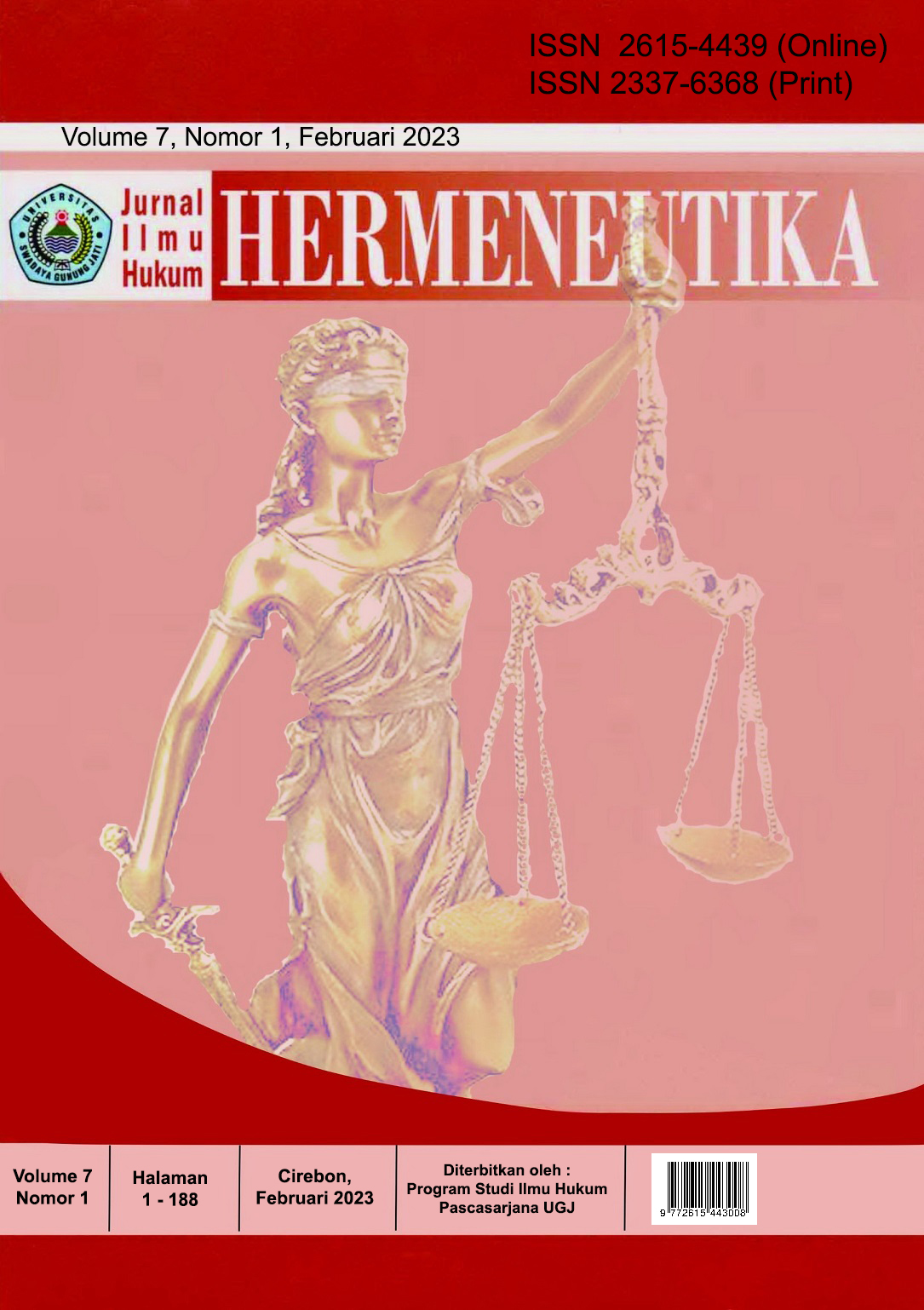ANALYSIS OF THE PHENOMENA OF THE MASS JUDGMENT FROM A LEGAL SOCIOLOGICAL POINT OF VIEW
DOI:
https://doi.org/10.33603/hermeneutika.v6i3.8338Abstract
References
Pengadilan, Jakarta: Prenada Media Group
Ali, Z. 2008. Sosiologi Hukum. Jakarta: Sinar Grafika
Chazawi, A. 2002. Percobaan Dan Penyertaan, Jakarta: PT. Raja Grafindo Perkasa
Efendi, S. 2020. Kejahatan Main Hakim Sendiri (Eigenrichting) Menurut Hukum Positif dan Fiqh jinayah. Jurnal Perundang Undangan dan Hukum Pidana Islam 5(1): 53-71
Fitriati. 2012. Perbuatan Main Hakim Sendiri dalam Kajian Kriminologis dan Sosiologis. Jurnal Masalah-Masalah Hukum 41(2): 161-166
Isnawan, F. 2018. Pandangan Yuridis Sosiologis Fenomena Street Justice di dalam Kehidupan Bermasyarakat. Jurnal Hukum Novelty 9(1): 17-35
Hamzah, A. 1986. Kamus Hukum, Jakarta: Ghalia Indonesia
Pasal 262 Undang-Undang Republik Indonesia Nomor 1 Tahun 2023 Tentang Kitab Undang-Undang Hukum Pidana
Ritzer, G. 2010. Teori Sosiologi Modern, Jakarta: Prenada Media Group Kitab Undang-undang Hukum Pidana
Saiin, A., dan Iffan, A. 2018. Fenomena Tindakan Main Hakim Sendiri dalam Hukum Negara dan Hukum Islam. Jurnal Perada 1(2): 141-150
Syahni, A. 1987. Sosiologi Kriminalitas, Bandung: Remaja Karya
Undang-Undang Dasar Negara Republik Indonesia 1945
Wibowo, A. 2013. Perlindungan Hukum Korban Amuk Massa: Sebuah Tinjauan Viktimologi. Padang: Thafa Media.
Yuseini, M., dan Astuti, P. 2020. Analisis Tindakan Main Hakim Sendiri (Eigenrichting) dalam Kasus Pembunuhan. Jurnal Hukum Novum 7(2): 124-134
Downloads
Published
Issue
Section
Citation Check
License
The Authors submitting a manuscript do so on the understanding that if accepted for publication, copyright of the article shall be assigned to Jurnal HERMENUTIKA, Sekolah Pascasarjana Ilmu Hukum. Universitas Swadaya Gunung Jati as publisher of the journal. Copyright encompasses rights to reproduce and deliver the article in all form and media, including reprints, photographs, microfilms, and any other similar reproductions, as well as translations.
Jurnal HERMENEUTIKA, Universitas Swadaya Gunung Jati and the Editors make every effort to ensure that no wrong or misleading data, opinions or statements be published in the journal. In any way, the contents of the articles and advertisements published in Jurnal HERMENEUTIKA are the sole responsibility of their respective authors and advertisers.










